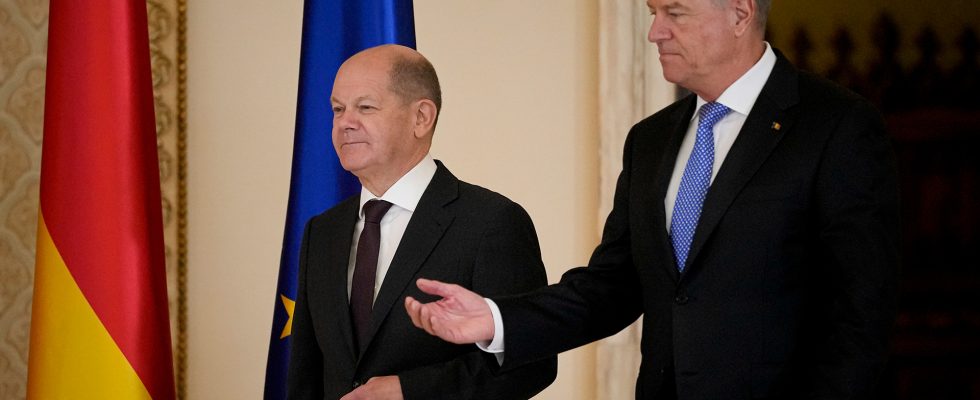Status: 04/03/2023 1:32 p.m
During his visit to Romania, Chancellor Scholz campaigned for the country to join the Schengen area without border controls as quickly as possible. Romanian President Iohannis is also confident that this can be achieved by the end of 2023.
Federal Chancellor Olaf Scholz and Romanian President Klaus Werner Iohannis expect the EU state to join the Schengen area as quickly as possible. “I hope that it will be possible this year,” said Scholz during his visit to Bucharest. “Romania has fulfilled all the conditions for Schengen accession to take place now,” he added.
Iohannis also emphasized that accession must take place this year. On the one hand, Romania is prepared and has long since fulfilled the conditions. On the other hand, such a step is no longer possible in 2024 due to the upcoming European elections.
So far it has failed primarily because of Austria’s veto
The admission of the two EU countries Romania and Bulgaria to the Schengen area failed in December, mainly due to resistance from Austria. But there were also objections from the Netherlands. Iohannis criticized this because the EU had determined at the end of 2022 that Romania was a constitutional state. There are fears in Austria about a possible illegal migration through Romania, which does not affect Austria at all.
Pilot projects will now begin on the Romanian-Serbian border to show how effective border controls can be. Romania and Bulgaria already apply some of the Schengen rules, but controls at the internal EU borders with them have so far been maintained.
Admission only possible unanimously
New Schengen members can only be accepted by the EU unanimously. Romania and Bulgaria have been waiting for the decision since 2011. In principle, citizens of the participating countries can travel within the Schengen area without a passport. Membership is also linked to effective control of the external borders of the Schengen area.

